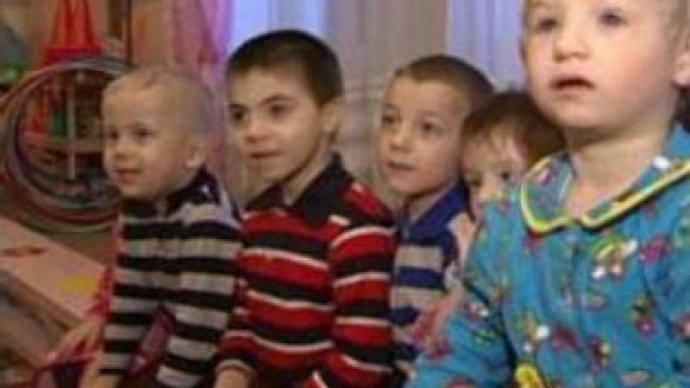Russia needs better adoption system

Russian orphanages are full of children waiting for someone to take them home. Though there are more options for Russians to take care of a child, even more people willing to adopt the orphans come from abroad.
As thousands of Russian orphans get adopted abroad more concerns arise about the children’s safety. In 15 years, 12 Russian children adopted by foreign families have died. Eleven deaths occurred in the United States, in most cases foster parents were charged with child abuse and murder.But for Russian lawmakers these verdicts were not enough. Many demanded an end to foreign adoptions altogether. Russia’s Ministry of education is pushing for a law to be passed by the Russian state Duma this year that would put the responsibility onto an agency to provide monitoring for Russian children taken abroad.Control of the children’s life abroad is conducted in accordance with the adoptive country’s law and Russian law accordingly. “Russian law requires every child to be registered with a Russian embassy, and this is the responsibility of adoptive parents and the agency. It is also required that an agency or a social service provides timely reports on a child's living conditions,” explains Sergey Vitelis, the Head of the Department of Social Protection of the Ministry of Education.More than half of the foreign agencies working in Russia lost their licences recent years. Officials say the goal is to make foreign adoption more transparent, but many argue the added procedures may discourage foreign families from adopting in Russia. Currently, the law allows an 8-month grace period for a child to be put up for adoption in Russia prior to resorting to foreign adoption.In recent years, more forms of care-giving have been made available to Russian citizens: from guardianship to weekend and holiday adoption, and foster families receive an allowance of around $US 250 per month per child. German Pyatov, who has been helping orphans for 15 years with his charity “Murzik”, believes that orphan’s problems extend beyond the shelter's walls.“The fact that a child ends up in an orphanage is not a tragedy, it is tragic when they are left outside. There are children in a nearby village whose parents have been drunk for several days. They are not taken care of, they may not have had breakfast, they are not dressed properly. So they are unrecognised orphans that constitute the rest of the iceberg of orphans in Russia,” said M Pyatov.However, the number of Russian families who want to adopt is not enough. The number of foreign adoptions is still almost twice the number of Russian adoptions: but these children who are past the favourite adoption age of 3 have little chance to live with a family abroad.
You can share this story on social media:












